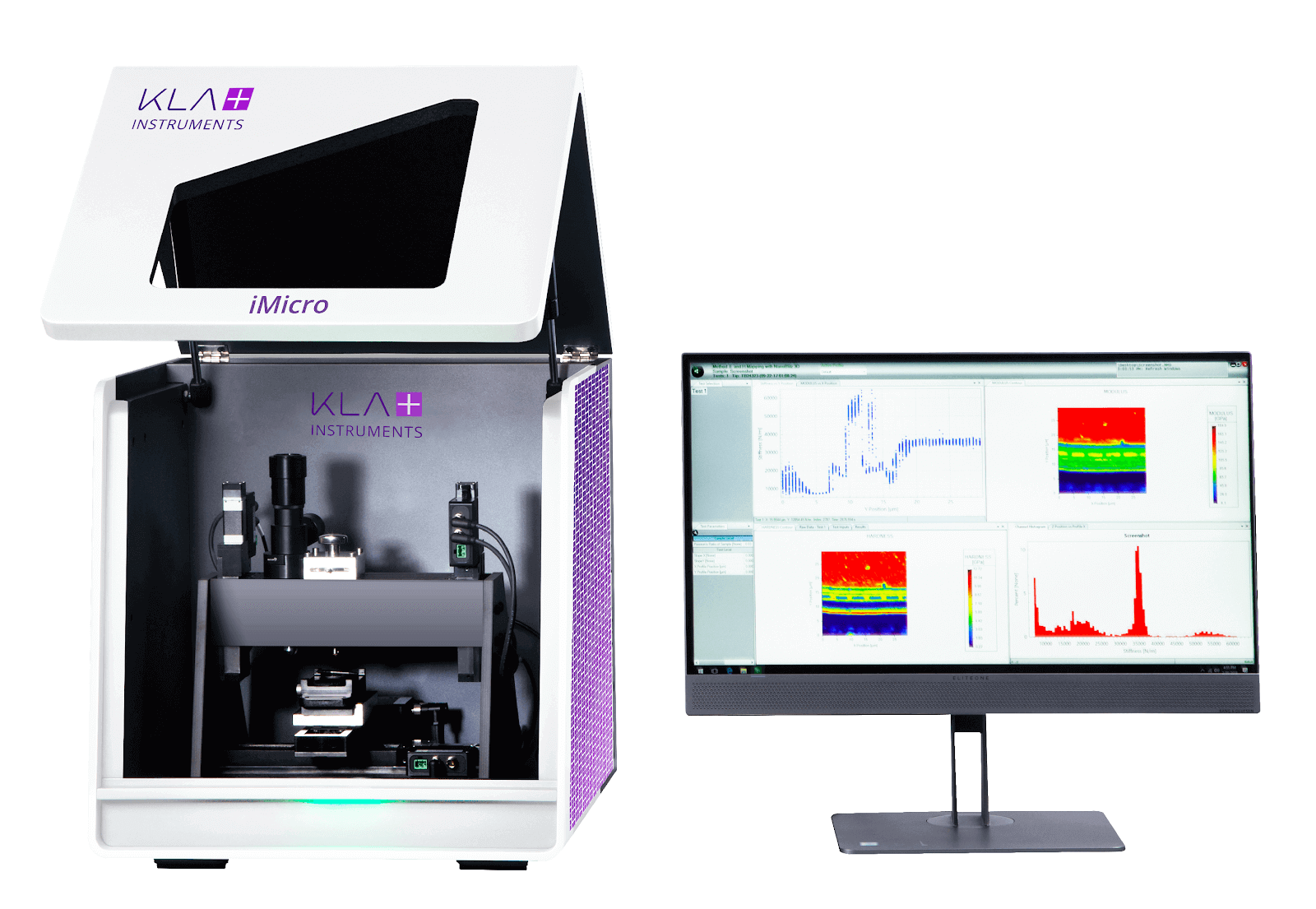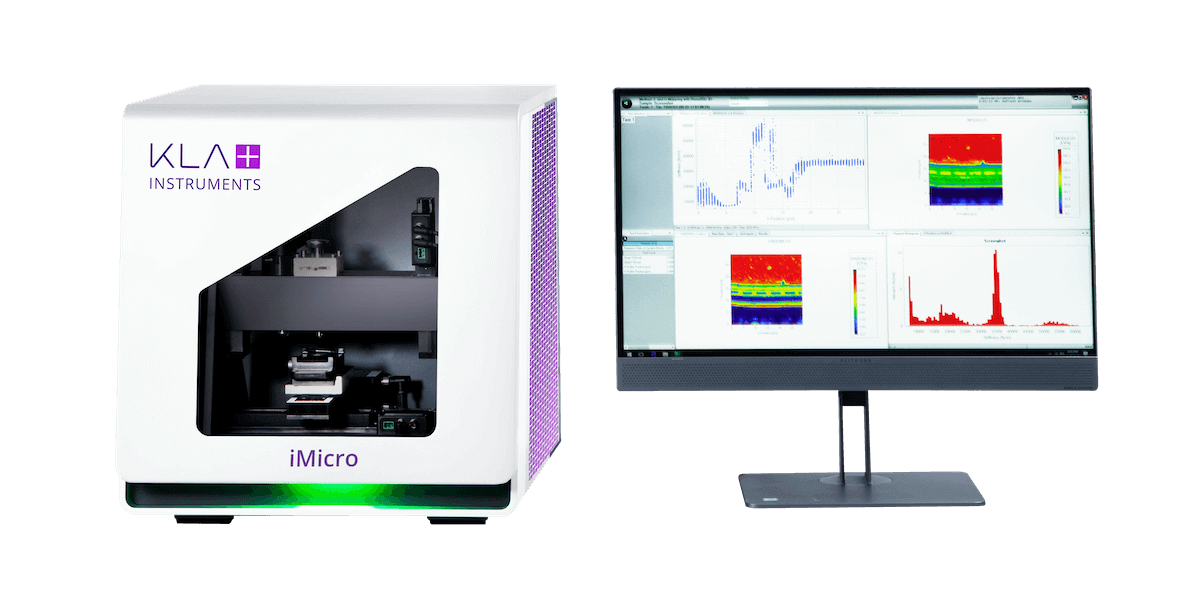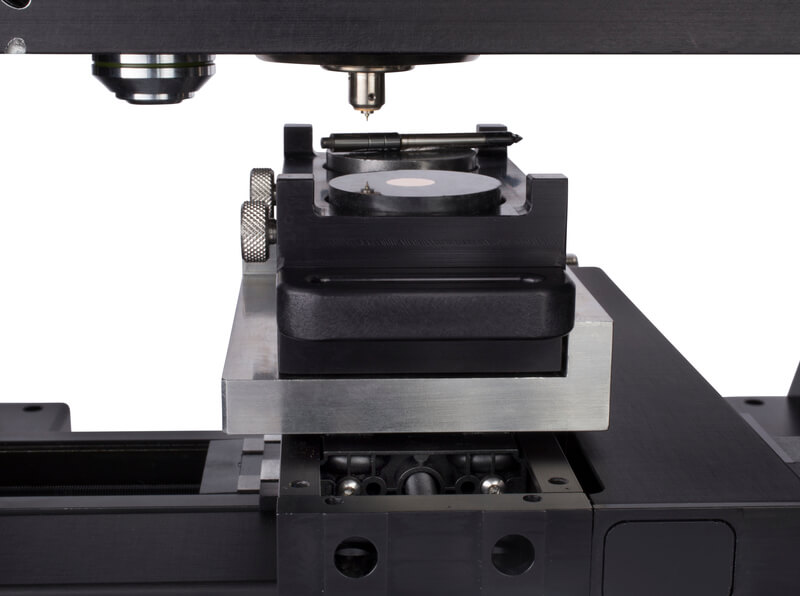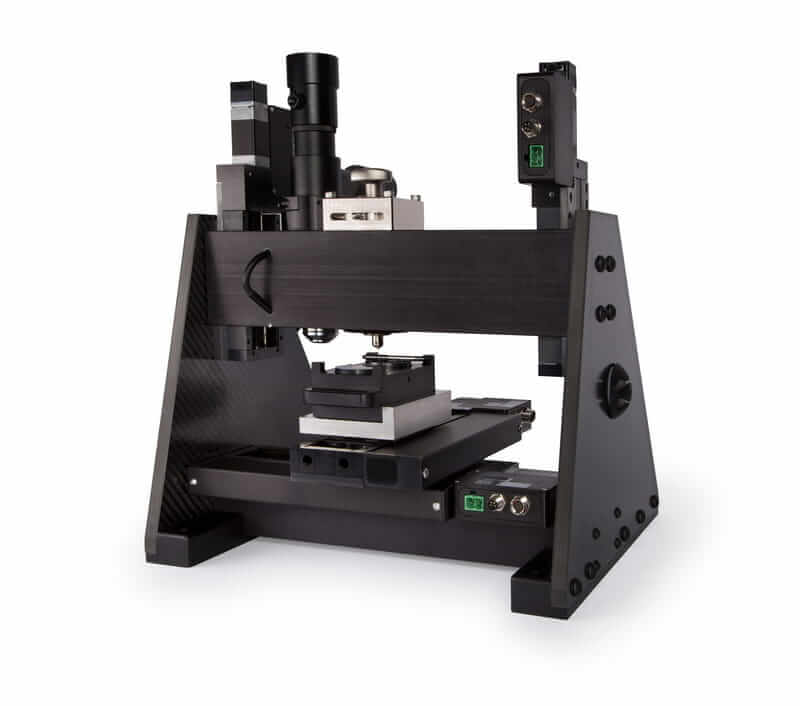■连续刚度测量(CSM)
Continuous stiffness measurement is used to quantify dynamic material properties, such as strain rate and frequency-induced effects. The CSM technique involves oscillating the probe during indentation to measure properties as a function of depth, force, time, or frequency. The option comes with a constant strain rate experiment that measures hardness and modulus as a function of depth or load, which is the most common test method used across academia and industry. CSM is also used for other advanced measurement options, including the ProbeDMA™ method for storage and loss modulus measurements and AccuFilm™ substrate-independent measurements. The CSM is integrated into the InQuest controller and InView software to deliver ease of use and data quality.

■InForce 50 Actuator
The InForce 50 actuator performs nanomechanical tests with forces up to 50mN. The patented electromagnetic force application ensures robust measurements and long-term force and displacement stability. Industry-leading mechanical design ensures that harmonic motion is constrained to one degree of freedom so that force and displacement are controlled along a single axis. The InForce 50 actuator is compatible with the CSM, NanoBlitz, ProbeDMA, biomaterials, sample heating, scratch, wear and ISO 14577 testing options. Tips are interchangeable among the entire line of InForce actuators.

■300°C Sample Heating
The 300°C sample heating option allows the sample to be placed into a chamber for uniform heating while simultaneously undergoing tests with either the InForce 1000 or InForce 50 actuators. The option includes high-precision temperature control, inert gas backfill to reduce oxidation, and cooling to remove waste heat. ProbeDMA, AccuFilm, NanoBlitz and CSM are all compatible with the sample heating option.

■300°C Sample Heating
The 300°C sample heating option allows the sample to be placed into a chamber for uniform heating while simultaneously undergoing tests with either the InForce 1000 or InForce 50 actuators. The option includes high-precision temperature control, inert gas backfill to reduce oxidation, and cooling to remove waste heat. ProbeDMA, AccuFilm, NanoBlitz and CSM are all compatible with the sample heating option.

■NanoBlitz 3D
NanoBlitz 3D utilizes the InForce 50 or InForce 1000 actuator and a Berkovich tip to generate 3D maps of nanomechanical properties for high-E (> 3GPa) materials. NanoBlitz performs up to 90,000 indents (300×300 array) at < 1s per indent, and provides Young’s modulus (E), hardness (H), and stiffness (S) values at a specified load for each indent in the array. The large number of tests enables increased statistical accuracy. Histogram charts show multiple phases or materials. The NanoBlitz 3D package includes visualization and data handling capabilities.

■NanoBlitz 4D
NanoBlitz 4D utilizes the InForce 50 or InForce 1000 actuator and a Berkovich tip to generate 4D maps of nanomechanical properties for both low-E/H and high-E (> 3GPa) materials. NanoBlitz performs up to 10,000 indents (100×100 array) at 5-10s per indent, and provides Young’s modulus (E), hardness (H), and stiffness (S) values as a function of depth for each indent in the array. NanoBlitz 4D utilizes a constant strain rate method. The package includes visualization and data handling capabilities.

■AccuFilm™ Thin Film Method Pack
The AccuFilm Thin Film Method Pack is an InView test method based on the Hay-Crawford model for measuring substrate-independent material properties using Continuous Stiffness Measurement (CSM). AccuFilm corrects for substrate influence on film measurements for hard films on soft substrates, as well as for soft films on hard substrates.

■ProbeDMA™ Polymer Method Pack
The Polymer Pack provides the ability to measure the complex modulus of polymers as a function of frequency. The pack includes a flat-punch tip, a viscoelastic reference material, and a test method for evaluation of viscoelastic properties. This measurement technique is key to characterizing nanoscale polymers and polymer films that are not well-served by traditional dynamic mechanical analysis (DMA) test instruments.

■Biomaterials Method Pack
The Biomaterials Method Pack provides the ability to measure the complex modulus of biomaterials with shear moduli on the order of 1kPa, and utilizes Continuous Stiffness Measurement (CSM). The pack includes a flat-punch tip and a test method for evaluation of viscoelastic properties. This measurement technique is key to characterizing small scale biomaterials that are not well-served by traditional rheometer instruments.

■Scratch and Wear Testing Method Pack
Scratch testing involves the application of either a constant or ramped load to an indenter while moving across the sample surface at a specified velocity. Scratch testing allows characterization of numerous materials such as thin films, brittle ceramics and polymers.

■DataBurst
DataBurst enables systems equipped with InView software and the InQuest controller to record displacement data at rates > 1kHz for measuring high strain step loads, pop-in and other high speed events. iMicro systems outfitted with the User Method Development option can also modify methods to work with DataBurst.

■User Method Development for InView Control Software
InView is a powerful, intuitive experiment-scripting platform that can be used for designing novel or complex experiments. Experienced users can set up and perform virtually any small-scale mechanical test using the iMicro system equipped with the exclusive InView option.

■Active Vibration Isolation with Modular Rack System
The optional high-performance active vibration isolation system provides additional vibration isolation for the iMicro nanoindenter, on top of its built-in vibration isolation. This easy-to-install system provides vibration reduction in all six degrees of freedom, with no tuning required. A Modular Rack System houses all components conveniently within an integrated rack.

■True Test I-V Electrical Measurements
Controlled through the InView software, the True Test I-V option for the iMicro nanoindenter utilizes a precision ammeter and voltage source, a through-tip electrical path, and a conductive tip. This design allows the user to apply specific voltages to a sample and measure the current at the tip while simultaneously operating the InForce 50 or InForce 1000 actuator.

■Linear Optical Encoders
The Linear Optical Encoder (LOE) option for the iMicro is integrated into the X and Y motion stages, and increases the positional accuracy and throughput of the testing process.

■Indenter Tips and Calibration Samples
The InForce 50 and InForce 1000 actuators utilize interchangeable tips. A wide variety of sharp indenters are available, such as Berkovich, cube corner and Vickers, as well as flat punches, sphere punches, and other geometries. Standard reference materials and calibration standards are also available for the entire product line.






























